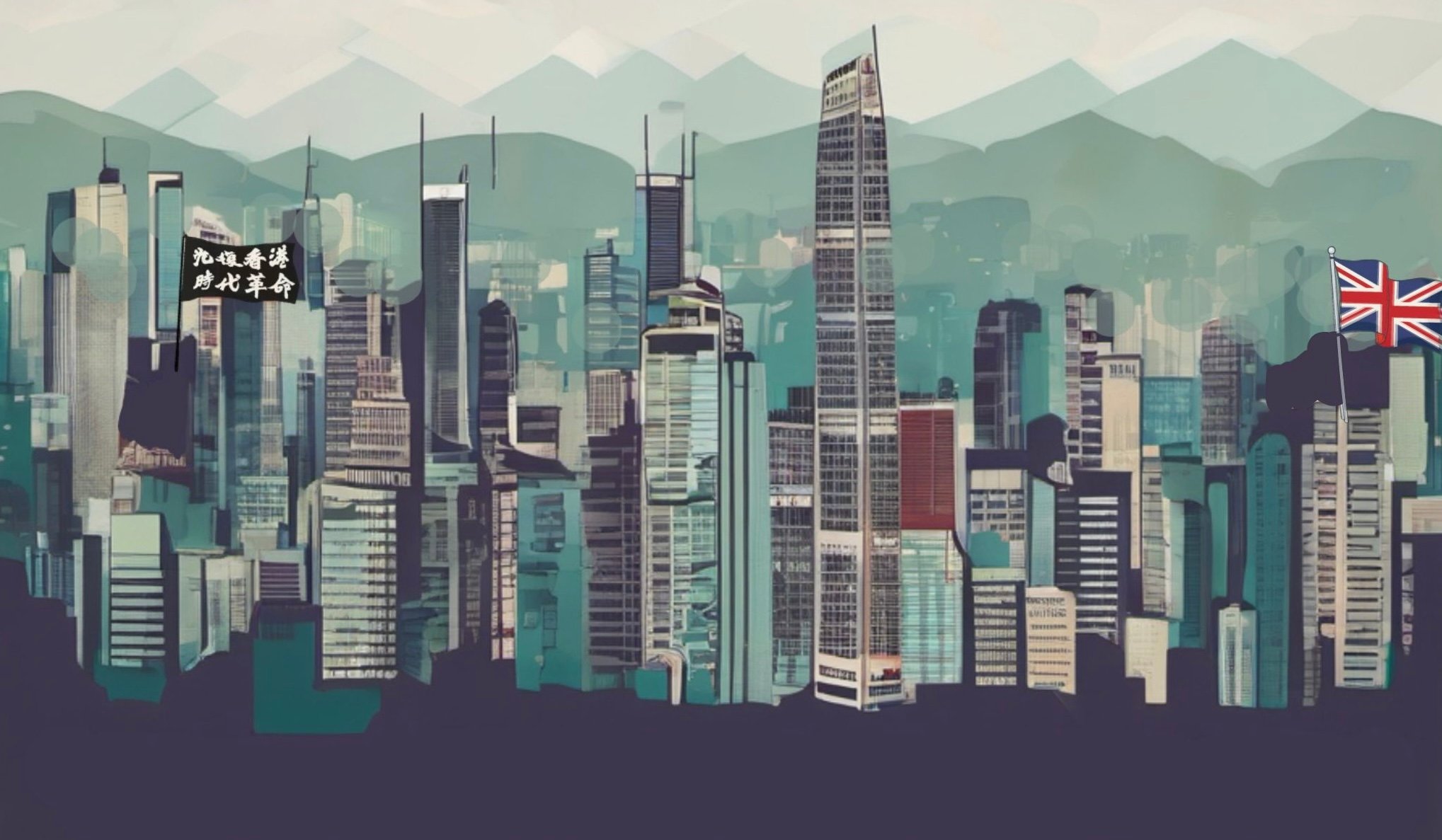
Protest artworks chronicling Hong Kong’s recent political trajectory and the ensuing wave of migration to the U.K. are currently on display at a museum in Leeds. Organizers hoped that, through art, the story of the former British colony and its political struggle can be better articulated to a wider audience.
Titled “HongKongers in the UK—A Journey of Hope and Resilience,” the exhibition at Leeds City Museum features over a dozen work by five artists originally from Hong Kong in the museum’s public area. The exhibition, supported by a non-profit called Ngo Dei and the museum has been well-received since its opening at the end of April, organizers said.
“The response is much better than what we expected. Visitors told us that they were touched by the artworks, the wall-texts, and understood better the connection between Hong Kong and the U.K,” said Chloe Cheung, founder of a group called Hongkongers in Leeds, which helped organize the show. “That’s the special thing about art. [It] is a great medium for people to understand our story and feel the emotions from looking at the works—more impactful than chanting the slogans in the streets.”
Installation view of “HongKongers in the UK—A Journey of Hope and Resilience” at Leeds City Museum, U.K. Courtesy of Hongkongers in Leeds.
Divided into five chapters, the exhibition follows a chronological timeline looking at the historical connections between Hong Kong and the U.K. starting from the British colonial times and 1997 handover of Hong Kong to China.
“We want to explain to people why Hong Kongers moved to the U.K.,” Cheung said. “The U.K. is our roots because of this history, and it was because of the British colonization [that] Hong Kong became an international city, rather an ordinary Chinese city.”
The show then covers major political events and the 2019 protests. Ricker Choi’s 721—Scream of Hong Kong (2019) depicts the horror of masked men in white T-shirts attacking pro-democracy protesters and commuters at a train station on July 21, 2019, in the form of a parody of Edvard Munch’s iconic The Scream.
Beijing’s subsequent implementation of the national security law in 2020 to curb the protests led to the suppression of press freedom and the closure of pro-democracy news outlets, such as Apple Daily, as well as the persecution of news media operators and journalists, many of whom are still remanded after nearly three years. Cheung pointed out that, so far, there are 1,800 political prisoners in Hong Kong as a result. Among the works on show include those by political artist duo Lumli Lumlong depicting Jimmy Lai, the founder of Apple Daily, who is facing national security charges.
Bowie, Moon We Share (2023). Courtesy of the artist and Hongkongers in Leeds.
These political events led to the U.K.’s introduction of a visa scheme in 2021 that allows people from the city who meet the criteria to live, work, and study in the country. More than 190,997 have applied for the visa as of September 2023, according to government data. Works by artists Justin Wong and Bowie explore the life of this new Hong Kong diaspora.
Despite the positive response, the exhibition also drew criticism from pro-China students studying in Leeds, noted Cheung. Some left derogatory remarks, ranging from anti-democracy comments such as “Hong Kong should not be free,” to others claiming that Hong Kongers were “kneeling to their U.K. colonial masters.” The comments were written in simplified Chinese on Post-It notes and put on the exhibition’s version of Lennon Wall, which echoes one of the key elements of the 2019 protests that allowed people to leave their remarks and wishes on sticky-notes.
“But we did not take these sticky-notes down because this is a free country,” Cheung said.
Organizers noted that they wanted to continue to speak up for Hong Kongers, especially those remaining in Hong Kong and unable to do so. There are plans to make the show a traveling exhibition but details are yet to be ironed out, according to Cheung.
“HongKongers in the UK—A Journey of Hope and Resilience” is on view at the Leeds City Museum through June 10.